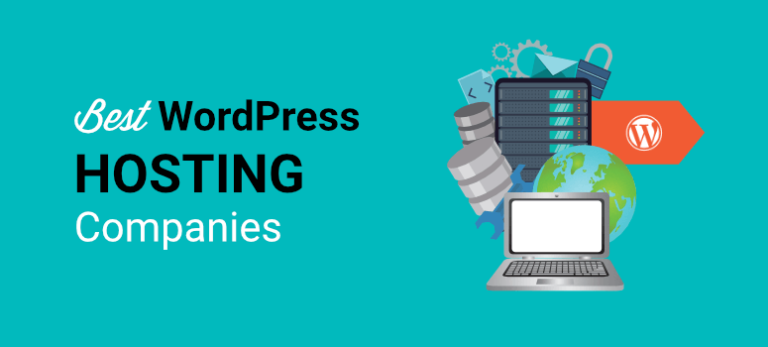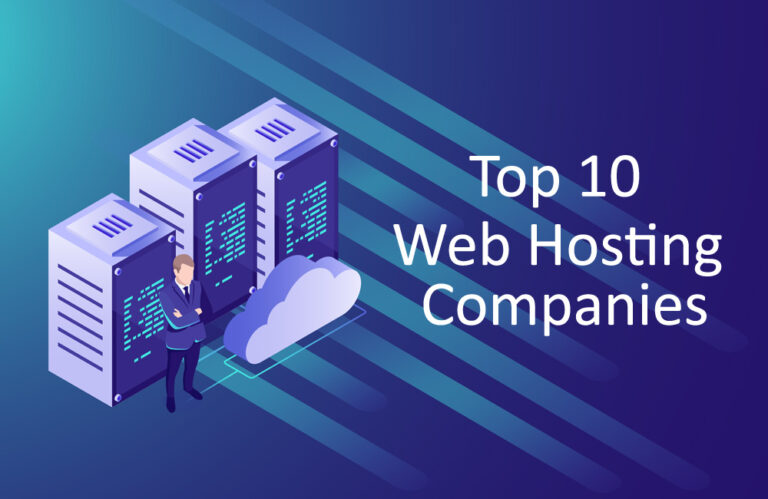Choosing the Best Web Hosting Provider: Your Ultimate Guide
To choose the best web hosting provider, evaluate your website’s needs and compare features, performance, and customer support. Research user reviews and pricing plans to make an informed decision.
Selecting the right web hosting provider is crucial for your website’s success. The right provider ensures optimal speed, uptime, and security. Consider your website’s specific requirements, such as storage, bandwidth, and scalability. A reliable hosting service enhances user experience and search engine rankings.
Look for providers offering 24/7 customer support and robust security features. Compare various hosting plans to find one that fits your budget and future growth. Reading user reviews can provide insights into the provider’s reliability and performance. Making an informed decision will help you avoid potential issues and ensure your website runs smoothly.

Credit: www.hostitsmart.com
Types Of Web Hosting
Choosing the best web hosting provider can be tricky. Understanding the types of web hosting can help you make an informed choice. Each type has its unique features and benefits.
Shared Hosting
Shared hosting is the most common and affordable option. Multiple websites share the same server resources. This makes it cost-effective but can affect performance if one site uses too many resources.
- Low cost
- Easy to set up
- Limited resources
- Possible performance issues
Vps Hosting
VPS hosting stands for Virtual Private Server. It offers more resources and greater control than shared hosting. With VPS, your website is hosted on a virtual server, which mimics a dedicated server but shares the physical server with others.
- Better performance
- More control
- Higher cost than shared hosting
- Requires some technical knowledge
Dedicated Hosting
Dedicated hosting means your website gets an entire server to itself. This offers the best performance, but it’s also the most expensive option. It’s suitable for large websites with high traffic.
- Exclusive server resources
- High performance
- Full control
- High cost
Cloud Hosting
Cloud hosting uses multiple servers to host your website. This provides excellent scalability and reliability. If one server fails, another takes over, keeping your site up and running.
- Scalable resources
- High reliability
- Pay-as-you-go pricing
- Complex setup
| Hosting Type | Cost | Performance | Control | Suitable For |
|---|---|---|---|---|
| Shared Hosting | Low | Basic | Low | Small websites |
| VPS Hosting | Medium | Good | Medium | Growing websites |
| Dedicated Hosting | High | Excellent | High | Large websites |
| Cloud Hosting | Variable | Excellent | High | Scalable websites |

Credit: teceze.com
Key Features To Consider
Choosing the best web hosting provider is crucial for your website’s success. Several features can make or break your decision. Here are some key features to consider:
Uptime Guarantee
Uptime is the time your website is accessible online. A good web hosting provider offers a high uptime guarantee. Aim for at least a 99.9% uptime guarantee. This ensures your site is almost always available to visitors.
Speed And Performance
Website speed affects user experience and SEO rankings. Choose a provider with fast servers. Look for SSD storage, which is faster than traditional HDD storage. Check if the provider offers a Content Delivery Network (CDN) for better speed.
Security Measures
Your website’s security is essential. Ensure the provider offers robust security features. This includes SSL certificates to protect data. Look for firewalls and regular backups to keep your site safe.
| Feature | Importance |
|---|---|
| Uptime Guarantee | High |
| Speed and Performance | High |
| Security Measures | Very High |
Pricing And Plans
Choosing the best web hosting provider is crucial for your website’s success. One of the most important factors to consider is Pricing and Plans. This section will guide you through the key aspects to look at.
Initial Costs Vs. Renewal Rates
Many hosting providers offer low initial costs to attract customers. These prices can be very tempting. But be aware that renewal rates are usually higher. It’s important to compare the initial costs with the renewal rates.
| Provider | Initial Cost | Renewal Rate |
|---|---|---|
| Host A | $3/month | $10/month |
| Host B | $5/month | $12/month |
| Host C | $4/month | $9/month |
Money-back Guarantees
A good web hosting provider will offer a money-back guarantee. This feature allows you to test their service without risk. Look for guarantees ranging from 30 to 90 days. This period gives you enough time to make a decision.
Hidden Fees
Some hosting providers may have hidden fees. These can include setup fees, migration fees, or higher renewal rates. Always read the fine print and ask questions if unsure.
- Check for setup fees
- Ask about migration costs
- Verify renewal rates
By understanding these key points, you can choose a hosting plan that suits your needs and budget. Always read the terms and conditions carefully.
Customer Support
Choosing the best web hosting provider involves many factors. One key aspect is Customer Support. Good support can save your website during crises. Let’s explore the importance of customer support in detail.
24/7 Availability
Your website can face issues at any time. That’s why 24/7 support is crucial. Ensure the provider offers round-the-clock assistance. This helps resolve problems quickly, even at odd hours.
Support Channels
Check the different support channels available. These can include:
- Phone
- Live Chat
- Support Tickets
Multiple channels ensure you have various ways to get help. Choose a provider that offers support through multiple channels.
Response Time
The response time of customer support is critical. Fast responses mean quicker solutions. Slow response times can lead to prolonged downtime. Ensure your provider guarantees prompt assistance.
| Support Feature | Importance |
|---|---|
| 24/7 Availability | High |
| Support Channels | Medium |
| Response Time | High |
Ensure your web hosting provider excels in these key support areas. Quality customer support can be a lifesaver for your online presence.
Scalability Options
Choosing the best web hosting provider involves understanding their scalability options. Scalability ensures your website grows smoothly with your business needs. Proper scalability means your site handles increased traffic without issues.
Resource Allocation
Resource allocation is crucial. It determines how your hosting provider assigns resources like CPU, RAM, and storage to your site. Look for hosting providers that offer flexible resource allocation. This allows you to add more resources as your website grows.
Here’s a simple table to understand resource allocation:
| Resource | Low Traffic Site | High Traffic Site |
|---|---|---|
| CPU | 1 Core | 4 Cores |
| RAM | 1 GB | 8 GB |
| Storage | 10 GB | 100 GB |
Upgrade Paths
Upgrade paths are essential for seamless growth. Your hosting provider should offer easy upgrade options. This ensures you can scale up without downtime. Here are some common upgrade paths:
- Shared Hosting to VPS
- VPS to Dedicated Server
- Dedicated Server to Cloud Hosting
Choose a provider with clear and flexible upgrade paths. This keeps your website online and efficient.
Traffic Handling
Traffic handling is a key factor. It ensures your website runs smoothly even during traffic spikes. Look for hosting providers that offer:
- Load Balancing
- Content Delivery Networks (CDNs)
- Auto-Scaling Features
Load balancing distributes traffic evenly across servers. CDNs deliver content quickly to users worldwide. Auto-scaling adjusts resources based on real-time traffic.
Proper traffic handling means your site stays fast and reliable, even with heavy traffic.

Credit: rockcontent.com
User Reviews And Reputation
Choosing the right web hosting provider can be challenging. Understanding user reviews and reputation is crucial. These insights help gauge the reliability and performance of a web host.
Customer Testimonials
Customer testimonials provide a firsthand account of the user experience. They often share personal stories and specific benefits.
Look for testimonials that highlight:
- Uptime reliability
- Customer support quality
- Loading speed
- Ease of use
These elements give a clear picture of what to expect.
Industry Awards
Industry awards can indicate a hosting provider’s excellence. These awards are often given by respected organizations.
Key awards to consider include:
| Award | Significance |
|---|---|
| Top Web Hosting | Recognizes overall performance |
| Best Customer Service | Highlights superior support |
| Best Uptime | Indicates reliable service |
Such awards can be a strong indicator of quality.
Third-party Reviews
Third-party reviews from independent websites are valuable. They provide unbiased insights and detailed comparisons.
Top review sites to check:
- Trustpilot
- G2
- HostAdvice
These platforms offer comprehensive reviews and user ratings. Examine reviews for consistent patterns of positive or negative feedback.
Understanding user reviews and reputation is essential. It helps in making an informed decision.
Final Tips
Choosing the best web hosting provider can be challenging. Here are some final tips to help you make the right decision. Focus on these key areas to ensure you get the best service.
Trial Periods
Most web hosting providers offer trial periods. These allow you to test their services without a long-term commitment. Look for providers with at least a 30-day trial. This gives you enough time to evaluate their performance. If the trial period is shorter, it might not be enough to make an informed decision.
Backup Solutions
Backup solutions are crucial for data safety. Ensure your provider offers automatic backups. Daily backups are ideal, but weekly backups are a minimum. Check if they offer easy restore options. This can save you from data loss in emergencies.
| Provider | Backup Frequency | Restore Options |
|---|---|---|
| Provider A | Daily | One-click Restore |
| Provider B | Weekly | Manual Restore |
Contract Terms
Understand the contract terms before signing up. Look for flexible plans that allow you to upgrade or downgrade. Avoid long-term contracts if possible. Shorter contracts offer more flexibility. Check for any hidden fees or charges. Transparency in contract terms is a good sign of a reliable provider.
- Read the fine print.
- Understand the cancellation policy.
- Look for no hidden fees.
By focusing on these areas, you can choose the best web hosting provider. Make an informed decision and ensure your website runs smoothly.
Frequently Asked Questions
Which Is The Best Web Hosting Service Provider Why?
The best web hosting service provider is Bluehost. It offers reliable performance, excellent customer support, and affordable pricing.
What Is The Best Recommended Web Hosting?
The best recommended web hosting is SiteGround. It offers excellent performance, reliable uptime, and exceptional customer support.
Which Web Hosting Is Best For Beginners?
Bluehost is ideal for beginners. It offers user-friendly features, 24/7 support, and affordable pricing. Their one-click WordPress installation simplifies website setup.
How To Choose Hosting Type?
To choose a hosting type, assess your website’s traffic, budget, and technical needs. Consider shared, VPS, or dedicated hosting. Evaluate uptime, customer support, and scalability options. Research reviews and compare features to make an informed decision.
Conclusion
Selecting the right web hosting provider is crucial for your website’s success. Consider your needs, budget, and support options. Reliable hosting ensures better performance and security. Research thoroughly and choose wisely. Your website’s future depends on this important decision. Make sure to pick a provider that aligns with your goals.



